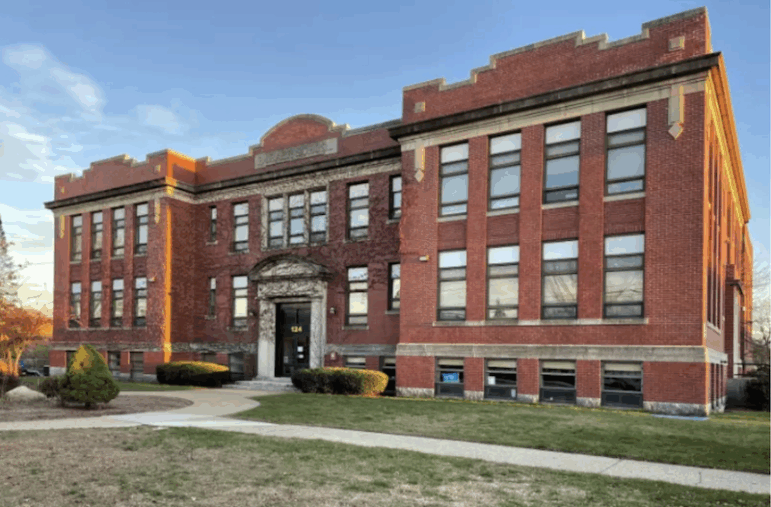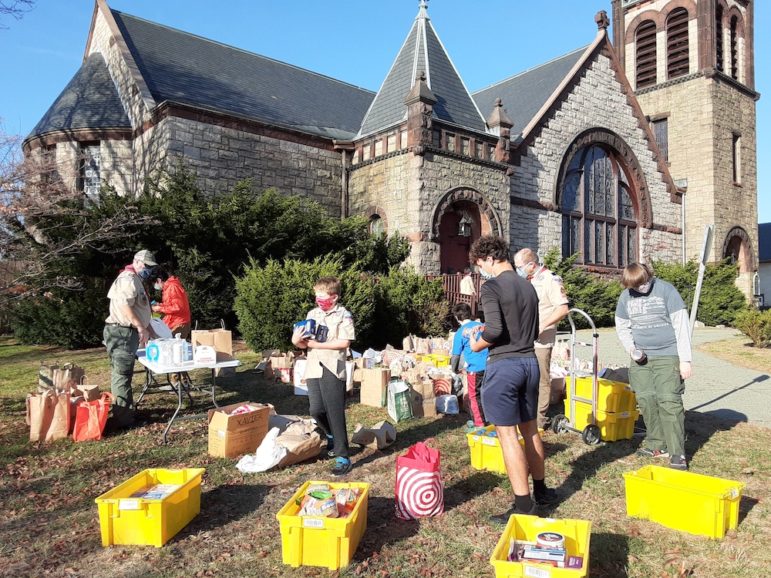
Tuesday night, the City Council approved funds to renovate the Parker Annex Building to set up a new home for the Watertown Food Pantry, update and rehabilitate the building, and bring it up to the Americans with Disabilities Act (ADA) standards.
On June 24, the Council unanimously approved borrowing $5.778 million to pay costs of renovating the Parker Annex Building, the former school building that became an office building before being reacquired by the City in 2023. City Manager George Proakis the money will be combined with the $326,890 in ARPA and other funds set aside for setting up the Watertown Food Pantry in the Parker Building, and $104,000 (also approved Tuesday) to cover the cost above the project estimate.
“We’re excited about this project. What this project accomplishes is it builds out the second floor for the (Department of) Community Development and Planning,” he said. “It builds out basement space for the Food Pantry. It does a substantial amount of electrical work, and it’s the first step of the process to make sure the building is fully compliant with the American with Disabilities Act.”
The total project cost is $6.2 million, and includes masonry costs, fire suppression system installation, second floor renovations, and ADA update requirements.
Former Councilor Angeline Kounelis said she has concerns about the Food Pantry moving to the Parker Building, which is located at 124 Watertown St.
“What if any provisions are in place to ensure that residents are able to get to the Food Pantry, because there is no public transportation in the area, and I’m concerned about the elderly and folks who do not have personal vehicles,” she said.
The Parker Annex is a few blocks from public transit, while the current location, in the former United Methodist Church at 80 Mt. Auburn St., is right on a bus line. Proakis noted that the church has been on the market, and there may be a buyer for the property. The City will work on finding ways to get people to and from the Pantry’s new location.
“We’re going to set this up there. We’re going to look at this with our Senior Center shuttles and some of our support systems that we can provide through our Human Services team,” Proakis said. “If there are individuals having difficulty getting there they can reach out to our Food Pantry team, or reach out to our 311 team. And if we have to add a shuttle route or add a step to be able to get there, we will do that.”
Troop 30
The current home of the Watertown Food Pantry is at the former Methodist Church on Mt. Auburn St. Here scouts from Watertown Troop 30 and Pack 30 sort donations they collected for the Food Pantry.
The Parker site will provide a permanent spot for the Food Pantry, including office space, storage space, refrigerator space, and possibly be open more days each week. At the current location it is limited to a single day a week. Proakis added that there could be other locations for the Food Pantry beyond the Parker School.
“This also doesn’t have to be in the long run, the only location that the Food Pantry operates out of,” he said. “If the church situation settles down in such a way they want us to continue to operate a program there, we could potentially do that. They are a little bit better accessible to transit. So this is an ongoing evolution.”
The work on the Parker Annex is the first phase of three, which will have a total estimated cost of $8.579 million. The City got permission from the State Access Board to push back some of the ADA requirements for up to two years. Some of the work may be able to be pushed back even farther into the future. The second phase will cost an estimated $875,000, and the estimate for phase three is $1.5 million, but Proakis said that might drop.
“Some of the ADA phase three work scheduled for Fiscal Year 2028 was actually upgrades to spaces of the Head Start program in the lower level,” Proakis said. “The Head Start program has indicated, actually they’re leaving this location at the end of the month. So we don’t necessarily even potentially have to do that, unless we reoccupy that with another daycare.”
The low bidder for the first phase of the project came in at $5.22 million and with other costs, such as construction contingency, owner contingency, construction administration, furniture and fixtures, the total comes to $6.2 million.
Excellent news. The Food Pantry does amazing work and supporting it is essential!